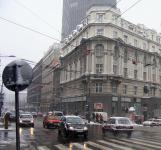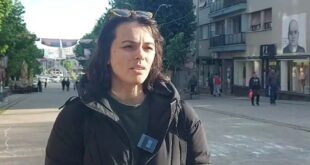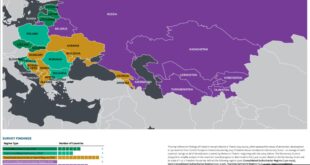 In the midst of talks with the International Monetary Fund, IMF, Serbia’s central bank governor Radovan Jelasic shed some light behind some the measures the government is taking to tackle the effects of the global economic slowdown.
In the midst of talks with the International Monetary Fund, IMF, Serbia’s central bank governor Radovan Jelasic shed some light behind some the measures the government is taking to tackle the effects of the global economic slowdown.
Speaking at a conference titled Global crisis: Can We take a break from bad news“, organised by the Friedrich Ebert Fundation and the ”Vreme” weekly, he said that he believed some politically unpopular measures ought to be taken in order to more effectively stave off the effects of the global crisis.
”We still have three years to the next regular parliamentary elections, so I believe it’s a good time for some unpopular solutions which voters probably wouldn’t like. Maybe it is not politically wise, but on a long-term point of view it is a good solution,” he said.
Such an unpopular move is the government’s so called solidarity tax, which would be payed by citizens receiving an above average salary. The problem here though is that the tax will be levied on all citizens with a monthly salary over 50,000 dinars (about 500 euros), meaning that it will not only be the rich who will bear the brunt of this tax, said Jelasic.
Asked who suggested the tax, Jelasic said that this was a middle of the road solution. He denied that there is a conflict between him and government.
Commenting on the ongoing negotiations with the IMF for a stand-by agreement, he said that Serbia has been lucky in that a lot of countries are interested in such loans and the ”IMF came to Serbia as soon as possible”.
 Eurasia Press & News
Eurasia Press & News



